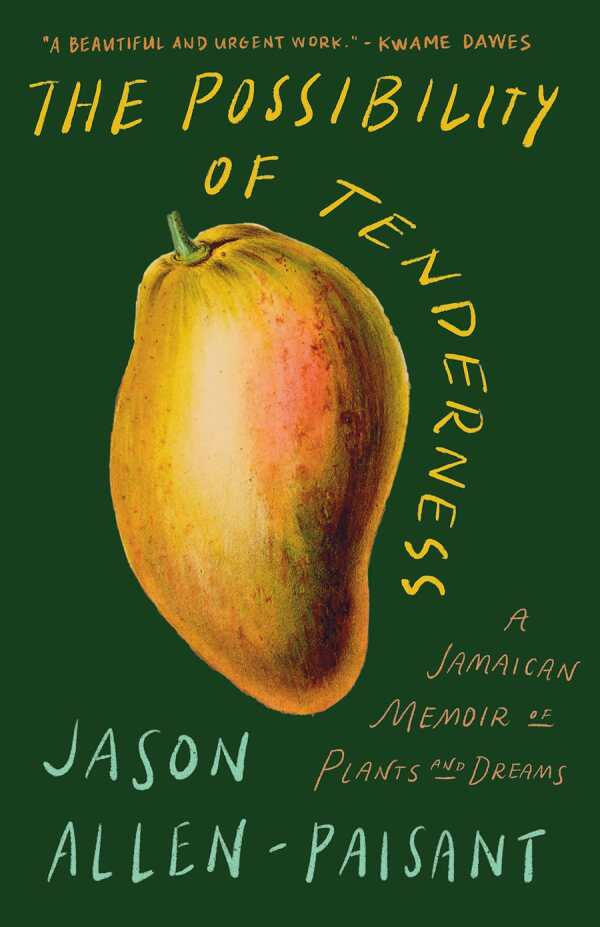The Possibility of Tenderness
A Jamaican Memoir of Plants and Dreams
About connection with the land, Jason Allen Paisant’s memoir The Possibility of Tenderness follows a return home after creating a life and family abroad.
Throughout his trip to Coffee Town, Jamaica, Paisant yearns for a more holistic connection with indigenous flora and fauna, reexperiencing what was once familiar. A lush landscape of yam vines, medicinal herbs, and rocky limestone is cause to mourn the loss of his grandmother, who raised him; he reconnects with his mother and other elders who knew him as a boy. Much of the grief experienced eludes words; Paisant worries that his estrangement from Jamaica left him disconnected from a vital part of his being. But he also feels like an outsider in the Caribbean and Black communities he connects with in England. Throughout, an additional layer of loss and unbelonging is introduced due to the Atlantic slave trade’s forcible relocation of African people to European colonies in the Caribbean.
Paisant finds joy and reestablishes this relationship to the world while existing in places, systems, and communities that appear hostile to it. Familiar places and scenes are addressed as though they are being seen for the first time; the Jamaican plants that Paisant works to identify and understand become a symbol for an overwhelming lack of connectedness. Pictures of plants and landscapes appear alongside the text, further suggesting a gap between experience and emotion.
Paisant invokes a wide range of influences and research, quoting and alluding to other writers who recontextualize grief, identity, and connection to place. Lyrical passages and poetry are interspersed among the essays, which are written with directness.
The Possibility of Tenderness is a searching, resonant memoir that champions connections between cultures, places, and people.
Reviewed by
Mike Good
Disclosure: This article is not an endorsement, but a review. The publisher of this book provided free copies of the book to have their book reviewed by a professional reviewer. No fee was paid by the publisher for this review. Foreword Reviews only recommends books that we love. Foreword Magazine, Inc. is disclosing this in accordance with the Federal Trade Commission’s 16 CFR, Part 255.

